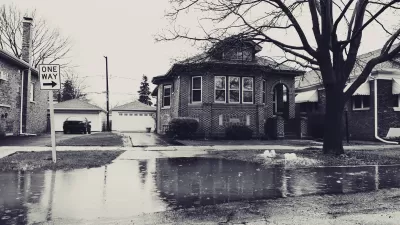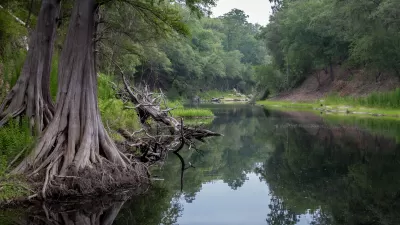In the first in a series of articles exploring 'infrastructure solutions for the next generation', Cynthia Barnett examines the creative ways that communities are solving the problems caused by old and overtaxed water systems.
"Across the nation, antiquated infrastructure like Seattle’s, swelling populations, and weather extremes are stressing our triplicate freshwater, stormwater, and wastewater systems like never before," says Barnett. "Industry groups such as the American Society of Civil Engineers, American Water Works Association, National Association of Water Companies, and U.S. Chamber of Commerce repeat the mantra that the nation’s water systems are some of the oldest, most overused, and most seriously failing of all America’s infrastructure—worse off than the nation’s bridges. The EPA estimates that repairing, replacing, and upgrading these aging water systems will cost between $300 billion and $1 trillion over the next two decades."
"Yet, too often, the engineers and the estimators aren’t taking into account that, rather than rebuilding waterworks in the twentieth-century tradition, an increasing number of communities are finding creative solutions that can be cheaper and better for the environment, and build resiliency to climate change," she notes.
"The water revolution reaches beyond the filtering and storage capacity of wetlands, plants, and trees to the way we perceive, use, and pay for H20. It involves seeing value in every kind of water—from irrigating with recycled water to finding energy in sewage. It sometimes eschews infrastructure altogether."
FULL STORY: Water Works

Maui's Vacation Rental Debate Turns Ugly
Verbal attacks, misinformation campaigns and fistfights plague a high-stakes debate to convert thousands of vacation rentals into long-term housing.

Planetizen Federal Action Tracker
A weekly monitor of how Trump’s orders and actions are impacting planners and planning in America.

Chicago’s Ghost Rails
Just beneath the surface of the modern city lie the remnants of its expansive early 20th-century streetcar system.

Bend, Oregon Zoning Reforms Prioritize Small-Scale Housing
The city altered its zoning code to allow multi-family housing and eliminated parking mandates citywide.

Amtrak Cutting Jobs, Funding to High-Speed Rail
The agency plans to cut 10 percent of its workforce and has confirmed it will not fund new high-speed rail projects.

LA Denies Basic Services to Unhoused Residents
The city has repeatedly failed to respond to requests for trash pickup at encampment sites, and eliminated a program that provided mobile showers and toilets.
Urban Design for Planners 1: Software Tools
This six-course series explores essential urban design concepts using open source software and equips planners with the tools they need to participate fully in the urban design process.
Planning for Universal Design
Learn the tools for implementing Universal Design in planning regulations.
planning NEXT
Appalachian Highlands Housing Partners
Mpact (founded as Rail~Volution)
City of Camden Redevelopment Agency
City of Astoria
City of Portland
City of Laramie





























